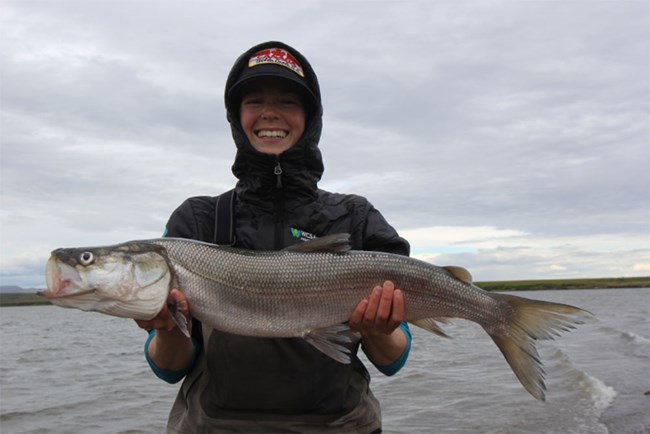
Wildlife Conservation Society
Contact: Carrie Haddad
Duration: 3 Years (2018-2020)
Coastal areas in the U.S. and Russia on both sides of the Bering Strait support active subsistence communities that depend on healthy ecosystems. This project will document and synthesize information on key fish species to provide baseline information for communities and will build a transboundary network of coastal fishery experts. The knowledge and capacity is critical for communities to prepare for potential marine incidents amidst rapidly expanding vessel traffic and economic development in the region. Population and genetic information provided by this research will support subsistence opportunities that lagoons provide to fishermen and marine mammal hunters and will help improve the ability of fishery managers to accomplish bilateral conservation objectives in coastal areas of the Chukchi Sea.
Russian Component: The Wildlife Conservation Society will host a workshop in Ternei, Russia, to increase the diversity of Russian partners involved in the second year of fieldwork. Key fieldwork will occur in Russia and will include a team of Russian scientists, leveraging the analogous data on the Alaskan coast. A bilateral team will produce a scientific manuscript to be finalized in both Russian and English.
Last updated: October 14, 2020
